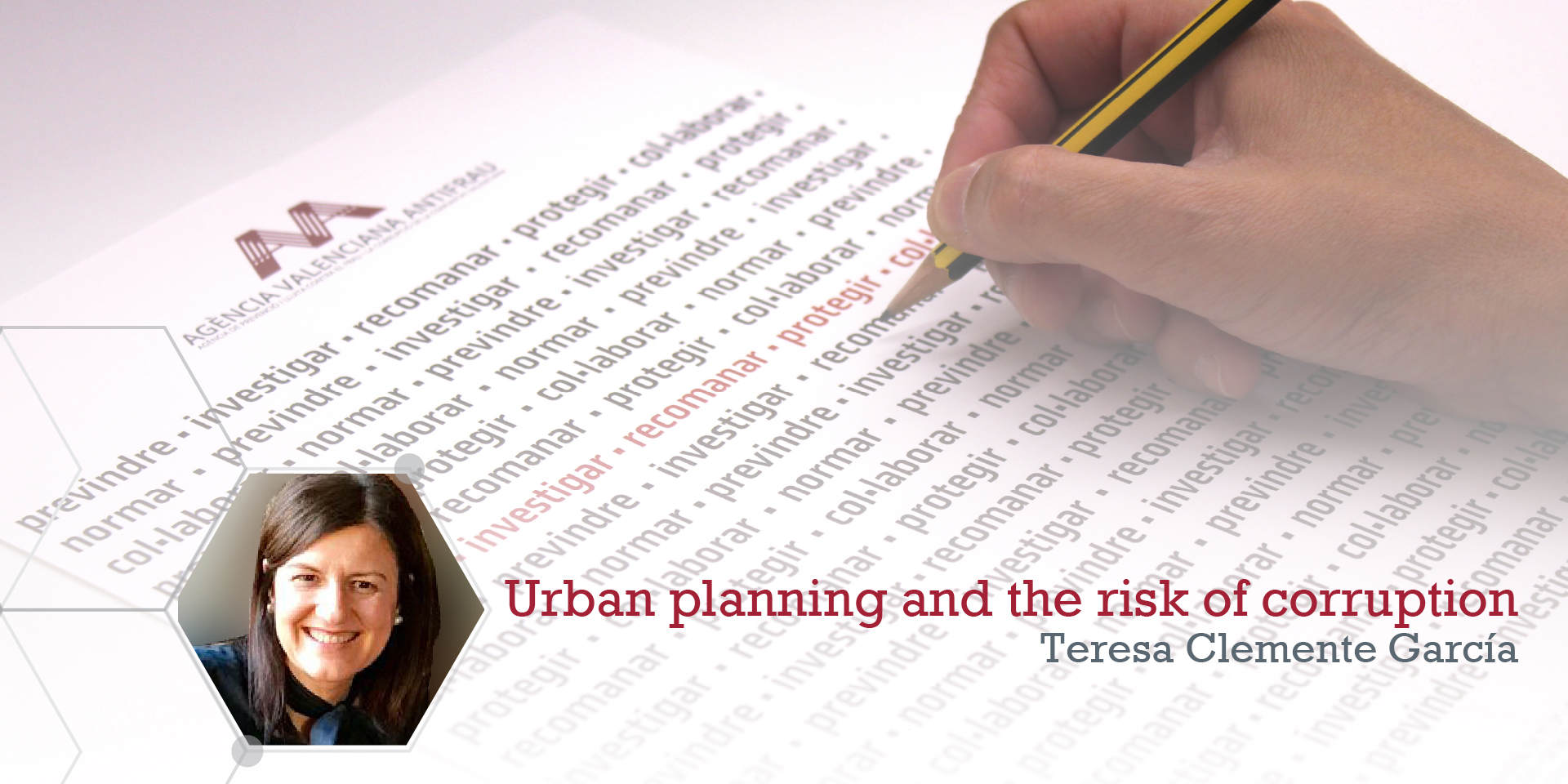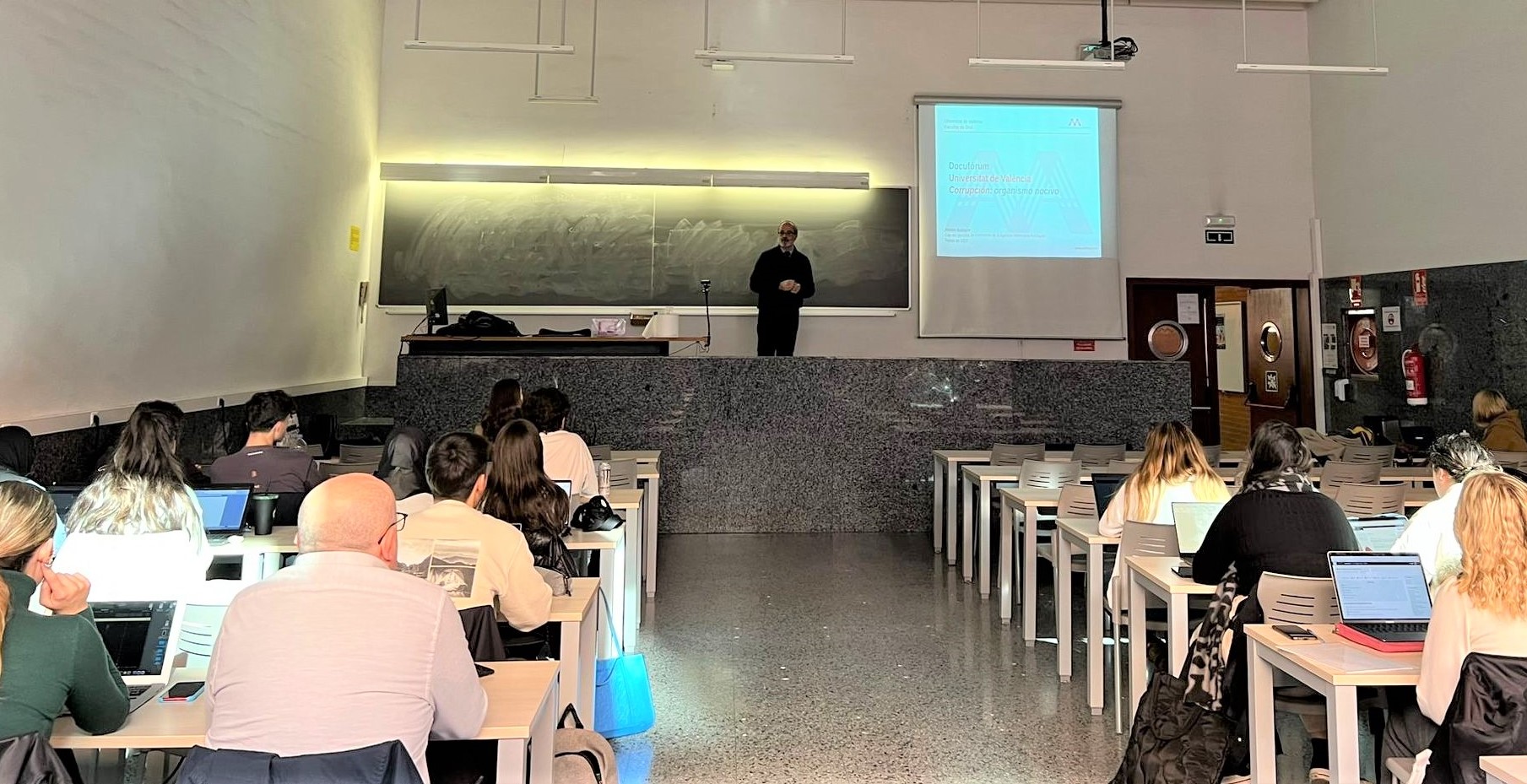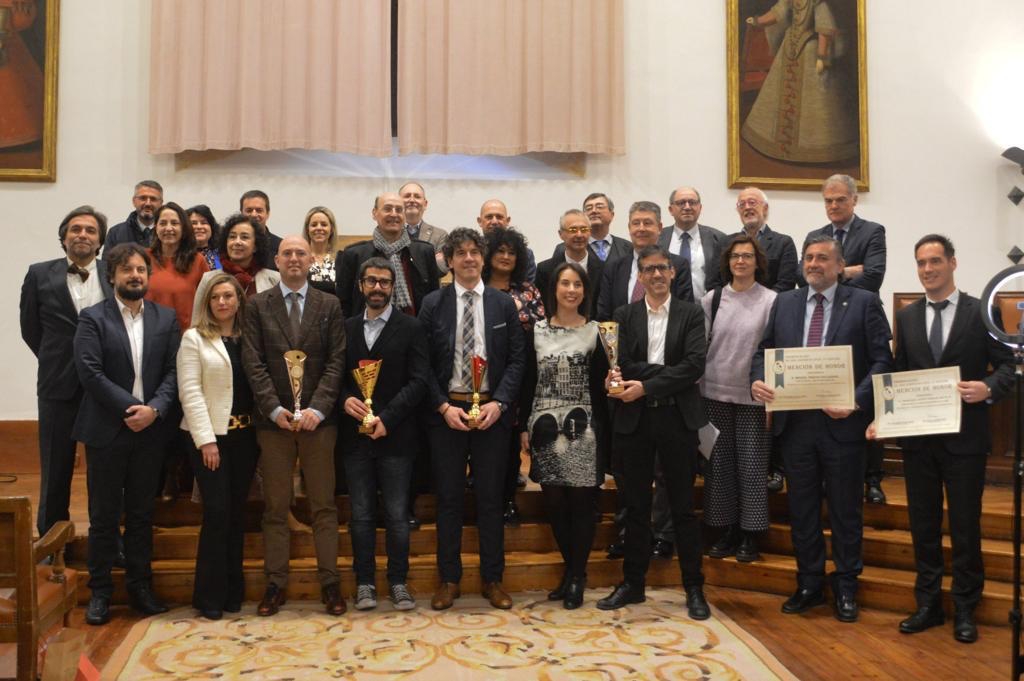Under the slogan “Urban planning and the risk of corruption” the Agency for the Prevention and Fight against Fraud and Corruption of the Valencian Community commemorated on December 12, for the sixth time, the International Day of Fight against Corruption.
A handful of chosen experts haveblended the very important role of citizens in the face of the phenomenon of urban corruption that, in an organized way, can and should, defend the public space of which we are all legitimate owners. They told us first-hand cases in which the fight against this scourge, despite being very hard, manages not only to reverse situations, but also to impose deserved sentences on those who grossly break the law for their own benefit.
We also had the opportunity to learn about the legal vision of this unfortunate outrage against the common good. The legal good protected in urban corruption is the rational use of the environment as a limited natural resource and the adequacy of its use to the general interest. It is a community asset that does not have a specific owner, but its injury harms, to a greater or lesser extent, an entire community, sincecorruption scandals linked to urban planning have an enormous impact: economic, environmental and social.
Among the causes of this phenomenon is the excessive discretion with which the City Councils have exercised and exercise the planning function. Urban planning agreements with individuals that give them a decisive role, real estate developments as a breeding ground, or civil servant technostructures, either by abandoning their functions, or actively serving as a transmission belt.
The NGO Transparency International has pointed out that the area where corruption is highest in Spain is the local one. In these governments, especially in those located on the coast or in the vicinity of large cities, the qualification of urban land is the origin of the greatest cases of corruption.
There are serious problems in at least four major areas: regulatory, bureaucratic, political and judicial.
Hyper-regulation, or sometimes even tricky regulation, leaves the door open to arbitrariness, confusion and opacity, arrogance in decision-making and bad governance.
The opening of activities and their operation without the granting of the appropriate licenses turning a blind eye or the excessive delay of authorizations in simple issues that should be resolved more effectively, are dysfunctions of the system that need to be corrected.
Training and information, both of civil servants and of elected and unelected officials, are essential to prevent deviation from any behavior. The consequences are not trivial: possible crimes of prevarication, embezzlement of public funds, bribery, money laundering, criminal organization, influence peddling, illegal financing of political parties; or at the very least, administrative sanctions, which must be proportionate, dissuasive and effective; In addition to those consequences that, despite being intangible, have an even more harmful impact: reputational damage, the distrust of citizens in their institutions and those who govern them, the breakdown of the principle of equality and the disconnection of the common good and the general interest for the benefit of a few.
We cannot deny the slowness of the judicial process, with cases that last an average of eight years; justice that is burdensome, and that cannot be afforded by the average citizen. In addition, often tangled: The matter turns out to be contentious when it was raised through criminal proceedings, or vice versa, if the criminal action was raised, the facts end up not conforming to the elements of the type, since not everything that is corruption is included in the Criminal Code.
The Criminal Code would also require a thorough reform, as well as the procedural law. The complexity of these matters makes it impossible for them to be adequately addressed, with the scarce personal and material resources available. From our point of view, corruption crimes should be known to a specialized justice, as has happened with issues as particular and reprehensible as gender violence.
It is curious that, although urbanity and urbanism, come from identical etymology, urbs-urbis in Latin, their most common current meanings are extremely distant.
According to the RAE, urbanity is behavior consistent with good manners that demonstrates good manners and respect for others.
However, according to the RAE, urbanism is the planning of the buildings and spaces of a city; the concentration and distribution of the population in cities.
Given this and with all my respect to academics, it is preferable in this case to go to Wikipedia, which defines urbanism as the study of how the inhabitants of urban areas, towns and cities, interact with the built environment. The free encyclopedia adds the need for urban planning, focusing on the physical design and management of urban structures. As a whole, it studies the social, economic and environmental relations that take place within the urban phenomenon.
We owethe term urbanism to the Catalan civil engineer Ildefonso Cerdá, in the late nineteenth century. A multifaceted man, he wrote the General Theory of Urbanization (1895), a pioneering work for which he is considered one of the founders of modern urbanism. His most important project was the urban reform of NINETEENTH-CENTURY Barcelona through the Cerdá Plan, with which he created the Eixample neighborhood.
According to Cerdá, urban planning is the planning of the various places and environments in which material, sentimental and spiritual life takes place in all its manifestations, individual and collective, and includes both urban and rural settlements. The well-being of the population, resident or foreign, constitutes the ultimate object of urbanization. Cerdá said: “Here are the philosophical reasons that induced me and decided to contribute the word urbanization, not only to indicate any act that tends to group the building and regularize its operation in the group already formed, but also the set of principles, doctrines and rules that must be applied, so that the building and its grouping, Far from compressing, distorting and corrupting the physical, moral and intellectual faculties of social men, they serve both to promote their development and vigour and to increase individual well-being, the sum of which forms public happiness.”
And he added, “When it has been a project of construction, reform or widening of a city, everything has been left to optional empiricism, believing that everything consisted in taking a more or less exact plan of the locality, drawing on it a system of lines that, being more or less seductive in the sight of the profane, has flattered the private interests of persons who could directly or indirectly influence its approval’.
Thus, given the abuse that is exercised by those who must make decisions, whether in the urban development of a locality, in the awarding of works or in compliance with regulations, transparency and mechanisms are essential to prevent such an attack on the general interest from being carried out.
Urban corruption implies, in the vast majority of cases, the total and absolute impossibility of recovering lost assets, because even in the very hypothetical case that compensation is decreed, the total reparation of the damage is already practically unfeasible. Sustainable development means meeting the needs of present generations without compromising the capacity of future generations.
In short, urban progress is the creation of habitable, healthy and sustainable common spaces where human life and itsmultiple interrelationships can be developed. It is essential to integrate environmental protection policy into the core of our energy, transport, consumption, waste, agriculture and care and maintenance policies for our forests. Increase awareness and prevention, properly manage public resources, which must not only meet the adequate and honest protection of the territory, but also our health, education, social services and so many other basic public needs.
We know where the solutions are, it only remains to work firmly to put them into practice.
Teresa Clemente García
Deputy Director and Director of Legal Affairs of the Valencian Anti-Fraud Agency




 After watching the documentary “Corruption: Harmful Organism”, the students ask questions, which in this case focused on the origin and causes of corruption, the social impact and collective costs it entails, the perception of corruption in our society and in other neighboring countries.
After watching the documentary “Corruption: Harmful Organism”, the students ask questions, which in this case focused on the origin and causes of corruption, the social impact and collective costs it entails, the perception of corruption in our society and in other neighboring countries.